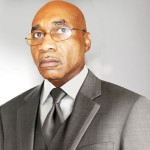
Social media discussion threads are swamped with discussions about Nigeria and a latest controversy about the list of ministerial nominees recently made public by its president, Muhammadu Buhari. Majority of the masses almost running out of patience, had waited for almost four months for their new leader to announce his ministerial team, and had equally criticized him for sluggishly sitting down on many issues of national significance. But the Presidency explicitly defended his delays of ministerial nominations, claiming it needed enough time to search for credible people to harmonize with his professed transformation agenda. He had uncontrollably used the term “change” to pacify their justified impatience.
The nation was shocked when the list of ministerial nominees was finally released and sent to the Senate by the Presidency for endorsement. Disgracefully, most nominees turned out to be the same politicians and public officers with accusations of embezzlement, mismanagement, and corruption blurring their records. The issues on political dynamics thus took a new turn, revealing that the President may have lied to the nation when he claimed he was taking his time to search for honest and capable hands. 
Another issue provoked by the President’s list centers on the “Change” philosophy affirmed by the President and his party, the All Progressive Congress (APC) as their governance approach. As a campaign strategy, Buhari’s camp had adopted the change mantra as an anthem, wooing their base with chocolate-coated transformation lyrics, and singing themselves into power. But besides a routine abuse of the practice since his inauguration, the President may have finally crashed what was left of in his credibility to fight moral laxity, and the ability to execute a transformation process he professed and paraded as his supervisory forte.
President Buhari’s handle of the country so far has convinced Nigerians across party lines that the regime has no idea what to do with power in a representative process. It is unfortunate that the regime has no blueprint to move their country forward, but are trapped with a President who neither communicates nor collaborates with subordinates but wakes up each day with strange attitude, disagreeing with himself, and pronouncing tactless orders.
Most Nigerians, without doubt are now convinced that this regime has battled unproductively with the perception of the change praxis. Yet, failure in any leadership process, as I have always mentioned, should not be treated as a taboo, but as a learning ground to make amends and proceed. Here again are a few summaries similar to what I presented earlier in the year, during a heated presidential campaign:
■ The first determinant of ‘change’ as a solution is the quality of the proposed transformation. A proposal to fight corruption with corrupt characters is not change, but reveals a total bastardization of the process. In the realm of ethical management, it takes moral people to shape moral society. The names and characters in Buhari’s list do not correspond that philosophy.
■ Change does not mean a rearrangement of managers and positions; it is not about firing workers for poor performance or jailing jobless youth for shop-lifting. It is a science – an embrace of a new paradigm strategically executed to inspire a solid foundation for future developments.
■ A quest for organizational renewal requires a constructive blueprint. A Change expedition without plan is like flying a passenger jet without a satellite-based navigation system. Since its inauguration, the regime has not presented any development outline, while the president singlehandedly made decisions in a dictatorial manner. In a structure supervised by a team of politicians unfamiliar with the dialect of change, the masses must be ready for further surprises.
■ In the complex world of political governance, change does not mean a change of address from Daura to Abuja. It is obvious that the regime does not understand the political meaning of “Change”, but has unwisely shown a biased movement, recycle, and reshuffle of people, positions, and the national resources. This is not “change”, but a systematized smash-and-grab invasion of the nation, its people, resources, and prospects.

Leave a Reply